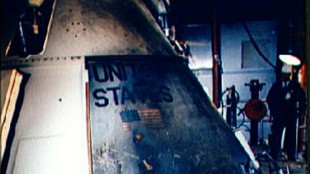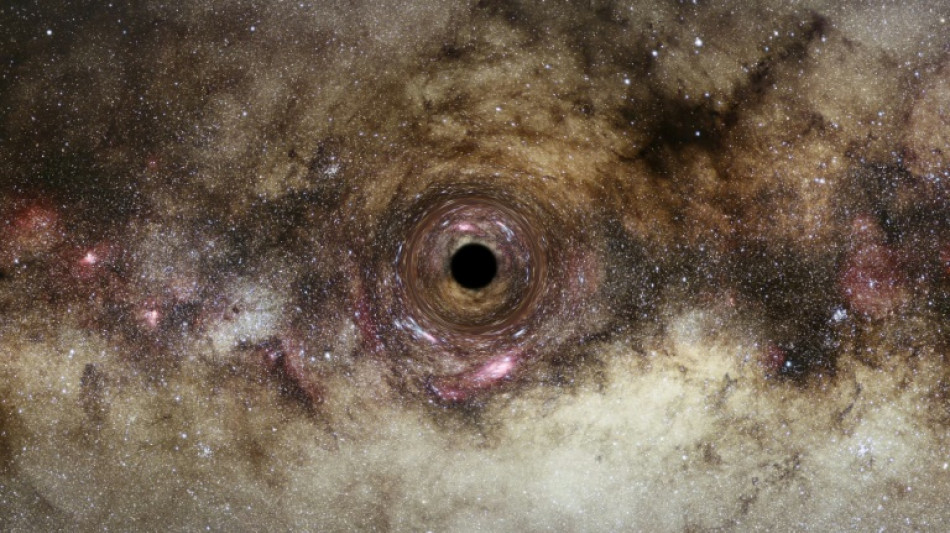
-
 AI-created Iran protest videos gain traction
AI-created Iran protest videos gain traction
-
Five things to know about Uganda

-
 Uganda votes under internet blackout and police crackdown
Uganda votes under internet blackout and police crackdown
-
Dreams on hold for Rohingya children in Bangladesh camps

-
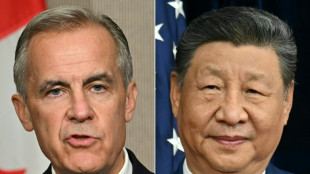 Canada's Carney in Beijing for trade talks with Chinese leaders
Canada's Carney in Beijing for trade talks with Chinese leaders
-
All Blacks fire coach Robertson less than two years before World Cup
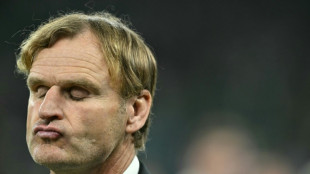
-
 Long-awaited EU-Mercosur trade pact set for signing
Long-awaited EU-Mercosur trade pact set for signing
-
Trump embraces AI deepfakes in political messaging
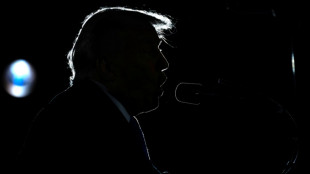
-
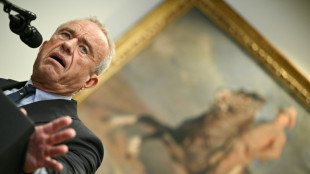 A year of Trump: US health policy reshaped in RFK Jr's image
A year of Trump: US health policy reshaped in RFK Jr's image
-
One year in, Trump shattering global order
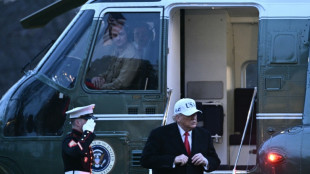
-
 Hit TV show 'Heated Rivalry' a welcome surprise for gay hockey community
Hit TV show 'Heated Rivalry' a welcome surprise for gay hockey community
-
Spanish singer Julio Iglesias prepares defence against abuse allegations: Hola! magazine
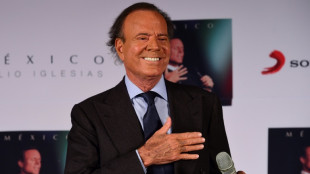
-
 Actor McConaughey seeks to patent image to protect from AI
Actor McConaughey seeks to patent image to protect from AI
-
Musk's Grok barred from undressing images after global backlash

-
 Hosts Morocco set up Senegal AFCON final showdown
Hosts Morocco set up Senegal AFCON final showdown
-
Trump says Iran killings stopped, Tehran says 'no plan for hanging'
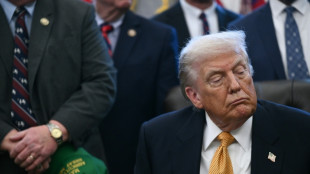
-
 Chelsea paid for costly errors in Arsenal defeat, says Rosenior
Chelsea paid for costly errors in Arsenal defeat, says Rosenior
-
Morocco beat Nigeria on penalties to reach Africa Cup of Nations final

-
 Golden Globes viewership shrinks again
Golden Globes viewership shrinks again
-
Astronauts leave ISS in first-ever medical evacuation
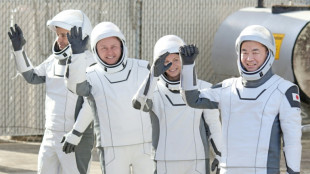
-
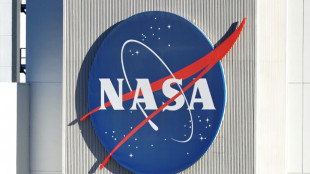 NASA reports record heat but omits reference to climate change
NASA reports record heat but omits reference to climate change
-
Trump praises 'terrific' new Venezuela leader after call
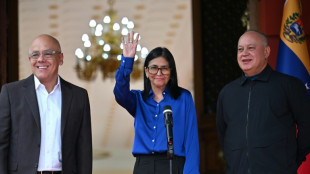
-
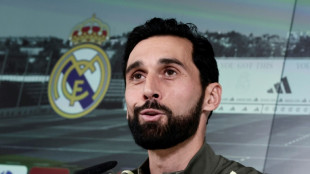 Real Madrid crash out of Copa del Rey at Albacete on Arbeloa debut
Real Madrid crash out of Copa del Rey at Albacete on Arbeloa debut
-
Trump says Iran killings stopped as US scales back Qatar base
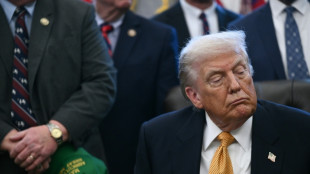
-
 Arsenal beat Rosenior's Chelsea in League Cup semi first leg
Arsenal beat Rosenior's Chelsea in League Cup semi first leg
-
US stocks fall again as Iran worries lift oil prices

-
 Inter extend Serie A lead to six points after Napoli slip
Inter extend Serie A lead to six points after Napoli slip
-
Bayern beat Cologne to move 11 points clear in Bundesliga

-
 Mane takes Senegal past Egypt into final of his last AFCON
Mane takes Senegal past Egypt into final of his last AFCON
-
Trump says Greenland will 'work out' after Denmark fails to bridge gap

-
 'Bridgerton' premieres in Paris promising 'Cinderella with a twist'
'Bridgerton' premieres in Paris promising 'Cinderella with a twist'
-
California begins probe of Musk's Grok over sexualized AI images

-
 Astronauts set to leave ISS in first-ever medical evacuation
Astronauts set to leave ISS in first-ever medical evacuation
-
Napoli's stalemate with Parma opens door for Serie A leaders Inter

-
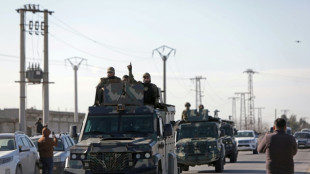 Syrian leader urges Kurdish integration as army sends troops east of Aleppo
Syrian leader urges Kurdish integration as army sends troops east of Aleppo
-
Denmark says White House talks failed to alter US designs on Greenland

-
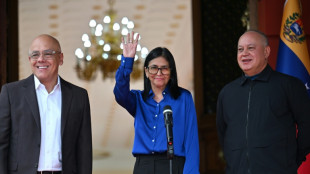 Venezuela looking to 'new era' after Maduro ouster, says interim leader
Venezuela looking to 'new era' after Maduro ouster, says interim leader
-
Mane takes dominant Senegal past Egypt into AFCON final
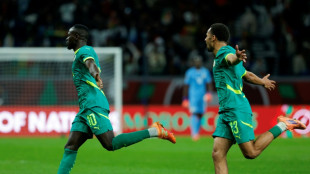
-
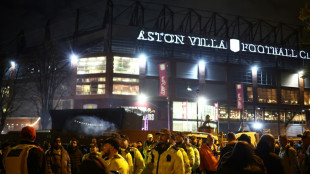 UK police admit 'mistakes' over Maccabi Tel Aviv fan ban
UK police admit 'mistakes' over Maccabi Tel Aviv fan ban
-
Promoter says Joshua will return to ring when 'time is right' after horror crash

-
 California investigating Grok AI over lewd fake images
California investigating Grok AI over lewd fake images
-
Wales's Faletau set to miss bulk of Six Nations

-
 Denmark, Greenland wrap up crunch White House talks
Denmark, Greenland wrap up crunch White House talks
-
England sweating on Fin Smith's fitness for Six Nations opener

-
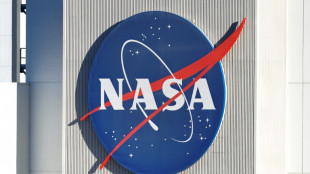 NASA acknowledges record heat but avoids referencing climate change
NASA acknowledges record heat but avoids referencing climate change
-
England rugby league coach Wane quits role

-
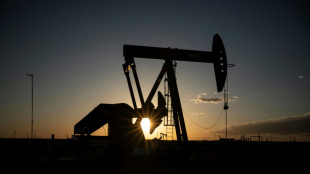 Oil prices extend gains on Iran worries
Oil prices extend gains on Iran worries
-
European basketball pioneer Schrempf lauds 'global' NBA

-
 Denmark, Greenland in crunch White House talks as Trump ups pressure
Denmark, Greenland in crunch White House talks as Trump ups pressure
-
Mitchell hits ton as New Zealand down India to level ODI series
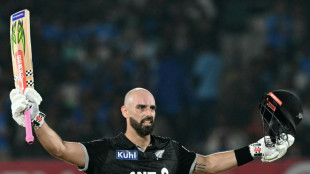

Astronomers discover one of biggest black holes ever recorded
One of the largest black holes ever recorded has been discovered using a new technique that could spot thousands more of the insatiable celestial monsters in the coming years, according to astronomers.
The ultramassive black hole, one of just four ever observed, is more than 30 billion times the mass of the Sun, a new study said.
It is the first black hole ever observed using a phenomenon called gravitational lensing, in which light travelling towards us from a distant galaxy appears to magnify and bend inwards, giving away the presence of a dark giant.
James Nightingale, an astronomer at the UK's Durham University and the study's lead author, told AFP the process was "similar to shining light through the base of a wine glass".
He said it was "very fortuitous" that the light of a galaxy in the distant universe travelled extremely close to this black hole, which is roughly two billion light years from Earth.
It could even be the biggest black hole ever recorded, but it was difficult to say for sure given the varying techniques and uncertainties involved, he added.
Supermassive black holes sit at the centre of galaxies using their vast gravitational pull to gobble up stars like specks of dust, not even allowing light to escape.
Previous black holes of this size have been observed when their voracious devouring gives off huge amounts light at the margins -- or by measuring the orbit of stars that speed up as they pass by.
But these techniques only work for galaxies relatively close to Earth.
- Landscape to 'dramatically change' -
Gravitational lensing allows astronomers to "discover black holes in the other 99 percent of galaxies that are currently inaccessible," Nightingale said.
There are currently around 500 known gravitational lenses -- at least one of which we now know is a supermassive black hole.
But "the landscape is about to dramatically change," Nightingale said.
The European Space Agency's Euclid mission, planned to launch into space in July, will open a "big data era" for black hole hunters by creating a huge high resolution map of the universe, he said.
In the next six years Euclid could find 100,000 new gravitational lenses, which would potentially point towards thousands of previously hidden black holes, Nightingale added.
For the latest discovery, the researchers used computer simulations and images from the Hubble Space Telescope to confirm their findings, as well as eliminating other possibilities such as an overconcentration of dark matter.
The huge size is also consistent with what would be expected for a black hole at the centre of its giant host galaxy, Nightingale said.
The mass of all the stars in the galaxy, dubbed Abell 1201, is more than a trillion times that of our Sun, meaning it would be expected to have a particularly large black hole at its centre.
The study was published in the journal Monthly Notices of the Royal Astronomical Society on Tuesday.
E.Qaddoumi--SF-PST

